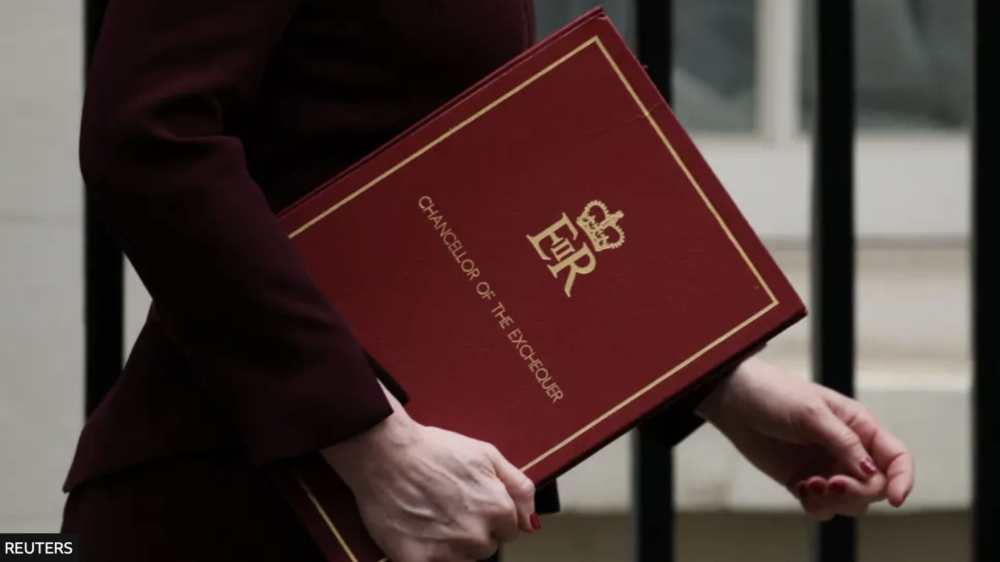What Could Be on the Agenda: Autumn Budget 2025
The second budget from the current Labour government is due to be announced at the end of November, a little delayed from the typical October date. As is commonplace pre-budget, there has been significant media speculation about just what this budget might contain. Especially given the relatively poor position of the country’s finances and the likely need to raise additional taxes. The position is complicated further by the labour government’s own restrictions to certain taxation sources, with their stated aims to avoid increasing income tax and national insurance. Although they could of course go back on these pledges.
So given the challenging backdrop, where could we see changes to the current major tax allowances and rates:

Capital Gains Tax (CGT)
Capital gains tax was adjusted in the previous budget, albeit to a lesser degree than some of the speculation suggested as rates were not aligned to the much higher levels of income tax rates. Given the last rises were lower than expected, there’s every chance we could see capital gains tax rates increase again. Whether this is a simple change to the tax rate or applied to different types of capital gains tax, chargeable assets or allowances, Only time will tell.
Probability: High
Threshold Freezes
A common theme from the current and previous governments has been applying freezes to tax allowances and tax bands, effectively applying a stealth tax. We have seen this across various tax rates, including income tax, capital gains tax, pensions and inheritance tax. Governments have seen this as a relatively low-risk method, politically speaking, to increase tax revenues without significant public resistance. There is every chance this will continue with extended freezes at this budget.
Probability: High
ISA Limit (cash)
It has been mooted that there could be a significant reduction in cash ISA limits from the current £20,000 per annum down as low as a £4,000 per annum. The reasoning for this would be to try and drive more money from deposit savings into investment markets, although there is no certainty that any such ISA allowance reduction would have the desired effect. ISA allowances and the different types of ISAs have been subject to numerous small changes over past budgets. A drop such as this proposed one would probably be the largest change in ISA rules in quite some time. Whether changes only apply to future contributions or become a restriction on existing ISA savings remains to be seen.
Probability: Medium
Pensions
Pensions are inherently a long-term savings policy and should in theory see minimal tax or policy changes to instil confidence amongst the public in committing their own funds into such a savings contract. Unfortunately, successive governments continue to make regular changes to pension contributions limits, tax rates, caps and allowances. The media has already speculated that there could be more again in this budget.
At present you can withdraw up to 25% of your pension pot as a tax-free lump sum, subject to a total tax-free cash limit of £268,275. There’s been speculation prior to every budget in the last 15 years that this tax-free cash allowance could be scrapped or as has been suggested recently, reduced significantly in value. Any such changes would be very politically unpopular given the large number of people they could immediately impact, either in or approaching retirement. A change to tax free cash amounts could be brought in at a future date to limit the fall out, but would that have the desired effect on the public finances?
Probability: Low
Tax Relief on Pension Contributions
An alternative pension saving for governments would be to reduce or cap tax relief on contributions. Today, pension withdrawals are taxed at your marginal rate and contributions get tax relief on the same basis. Applying a cap to the level of tax relief on contributions could make pension contributions quite a bit less attractive to savers. This goes against the government’s stated aims and their need for individuals to save more into their pensions and reduce the burden on the state. That said, reducing pension Tax relief on contributions could have a large immediate tax saving.
Probability: Medium

Salary Sacrifice Pensions
At present, it is possible for Companies to offer salary sacrifice schemes to their employees for pension contributions. This saves employer and employee national insurance contributions against the level of pension payments. Such schemes have been popular in recent times due to the clear tax benefits. The issue is that salary sacrifice is often not well understood by employers and employees and reducing or scrapping such a benefit could be a relatively simple cost saving to the government.
Probability: Medium
Inheritance Tax (IHT)
Inheritance tax revenues have increased significantly in recent years, in part through the effective stealth tax of not increasing the tax free allowances with inflation, bringing increasing numbers of estates into the inheritance tax regime. Despite these increases, there could still be areas the government try to target for increased tax revenues. This might include limiting lifetime gifts, changing the effective tax rate, changing the nil rate band or residents nil rate band allowances, and extending the period post gift that individuals would need to survive from seven years to 10 years before assets fall outside of their taxable estate.
Probability: Medium
Property Tax
Property taxes have grown quite a bit over recent years with higher levels of stamp duty, higher taxes on landlords and an increase capital gains tax but there could be scope for further rises through a review of council tax bands as well as an oft mooted wealth tax. Those changes would come with complications and likely no small amount of unpopularity, but remain potentially large areas of possible extra tax revenue
Council tax probability: low to medium
Wealth tax probability: low
Long Term Planning vs Short Term Speculation
It’s impossible to accurately predict any budget changes, and it’s important not to make long-term planning decisions based on short-term speculation. It can be preferable to complete already planned transactions prior to a budget where possible but the one thing that is certain is that tax rules are likely to change every year, and there is just as much chance that any changes made in this budget are reversed or changed again at any future one. Before making any decisions, if you have not already, it is best to seek independent financial advice.
It is also worth remembering that most budgets come against the backdrop of challenging economic conditions and a need to raise more taxes, so this is nothing new.
Article by Adam Nettleship
CEO Bigmore Associates
For personalised advice on your finances, book a meeting with Bigmore Financial Planning.
Our people first ethos means that we see You before your money. Your wants. Your needs. Your circumstances. This is what sets the scene for the financial plan we recommend. To have an initial, no obligation meeting to discuss your finances fill out the contact form below.

